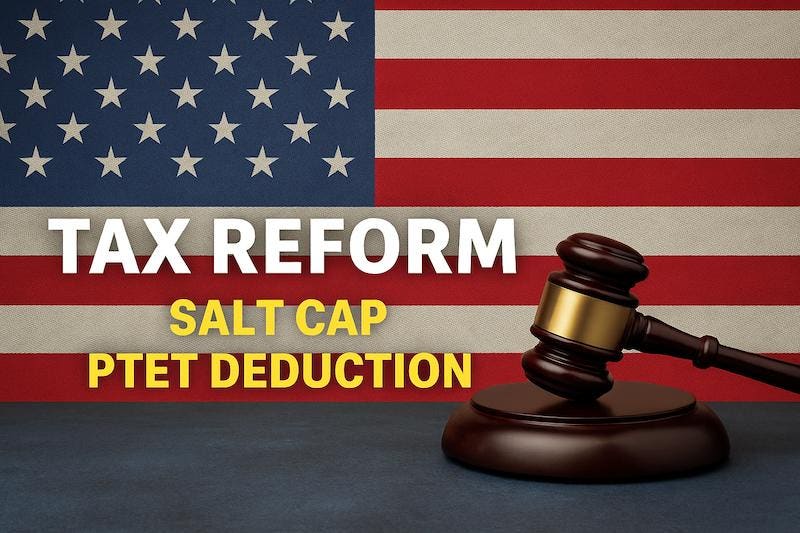The Senate takes a more balanced approach to SALT and PTET rules—avoiding punitive carveouts and restoring deductions for traders and service professionals.
Senate Republicans released a draft tax reform bill on June 16 that sharply diverges from the House’s approach to the state and local tax (SALT) deduction and the pass-through entity tax (PTET). Unlike the House version, which aggressively targets specified service trades or businesses (SSTBs), the Senate draft restores PTET deductions for all pass-throughs—offering welcome relief to traders, CPAs, and other professionals.
Senate Holds the Line on $10,000 SALT Cap
The 2017 Tax Cuts and Jobs Act (TCJA), set to expire after 2025, capped the SALT itemized deduction at $10,000 per year. In response, 37 states enacted PTET regimes allowing pass-through entities to deduct state taxes at the entity level—effectively bypassing the SALT cap for eligible business owners.
The House bill proposes raising the SALT cap to $40,000 with income-based phaseouts and denies PTET deductions to SSTBs. By contrast, the Senate draft keeps the SALT cap at $10,000 as a placeholder, signaling ongoing negotiations. Senate Finance Chair Mike Crapo and many Republicans oppose raising the cap, with some advocating for its complete elimination.
PTET Deduction Extended to All Professions
In a notable departure from the House bill, the Senate version eliminates SSTB exclusions. Instead, it applies a uniform PTET limitation: the greater of $50,000 or 50% of the eligible PTET deduction, regardless of industry. While more restrictive than current law—which in many states allows near-total deduction—this framework avoids discriminatory carveouts against service professionals.
Traders operating in PTET-eligible entities and qualifying for trader tax status (TTS) would retain access to this key deduction under the Senate proposal. However, sole proprietors, employees, and investment companies not eligible for TTS remain excluded.
Outlook and Next Steps
The Senate Finance Committee’s draft remains under discussion, with a floor vote anticipated as early as late June. If the Senate passes the bill, it will proceed to House-Senate reconciliation. The final outcome will determine whether PTET parity and SALT deduction relief endure in the finalized legislation.
As many taxpayers discovered under the TCJA, SALT cap limitations have been a major driver of increased federal tax bills—especially in high-tax states. The Senate proposal takes a more balanced approach, extending PTET relief without penalizing service professionals.
GreenTraderTax will continue monitoring developments and advise traders and professionals on year-end planning implications.
Darren Neuschwander, CPA, contributed to this article.
Read the full article here

